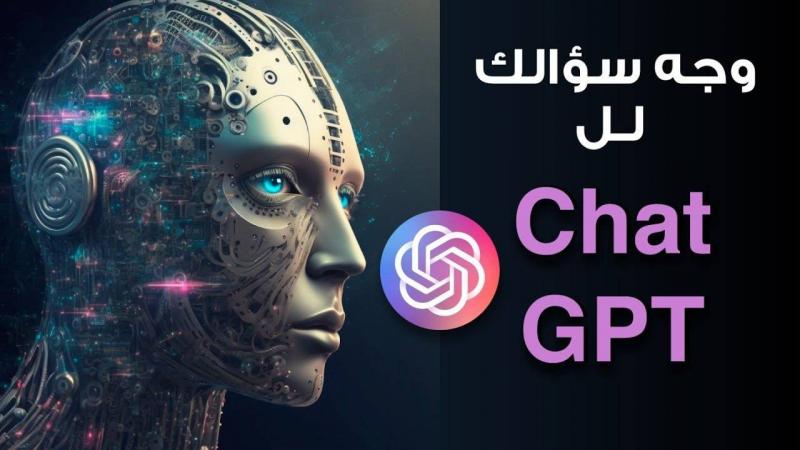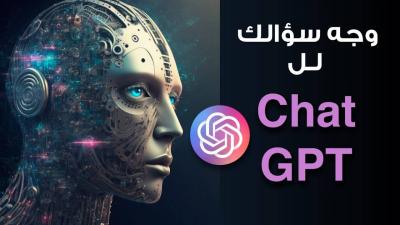The AI model ChatGPT has recently sparked significant debate, thanks to its remarkable capabilities in conducting conversations, responding to inquiries, writing code, solving programming problems, summarizing video clips, writing scripts, composing songs, and creating music, among other things.
ChatGPT is equipped with extraordinary intelligence and provides solutions readily to seekers, representing a beacon of hope for those exhausted from searching for answers, much like the Lebanese people who find themselves in a dark tunnel amidst endless crises that have stifled their breath. So why not turn to this extraordinary entity for guidance, hoping it might lead us toward the right path and devise a "smart" roadmap for the salvation of the country and its people?
Let’s start by asking about the most pressing requirement—the election of a president—which many consider the first step in the reform process. After six months of vacancy and hundreds of initiatives, meetings, and internal and external communications yielding no progress, the question arises: Will the vacancy in Lebanon be filled during 2023? The answer provided is that it is impossible to accurately predict whether Lebanon will elect a president in 2023, as this depends on several political, economic, social, and security developments that may influence the electoral process. Lebanon faces many challenges, including a suffocating economic crisis and acute political issues that hinder the ability to achieve the necessary political consensus to hold presidential elections and form a government.
As discussions abound regarding potential candidates for the presidency, with their stocks rising and falling alongside regional and international trivialities, who will unlock the doors to the Baabda Palace? ChatGPT responds that no one can determine who the next president of Lebanon will be, as candidates must present their political, social, and economic plans for the country. The outcome depends on achieving an absolute majority for electing the new president.
In light of the vacancy, the postponement of constitutional obligations, the paralysis of institutions, the public sector strike, and the ongoing decline, some are telling us that the country is heading toward further decay and fragmentation, possibly culminating in complete collapse or a major crash, especially if essential state positions remain vacant before a president is elected. However, according to the extraordinary intelligence at hand, it states that it cannot predict precisely what will happen in Lebanon in the future, but it is clear and certain that the political, economic, and social situation faces significant and multifaceted challenges.
There is a persistent danger to security in Lebanon due to political, sectarian, and economic conflicts, which could escalate at any moment, increasing the risk of a new civil war. As all indicators point to no signs of immediate resolution, with officials preoccupied with their sectarian populist quarrels amid the worst economic, financial, social, health, and educational crises, some fear slipping into civil war. What is the smart application’s view on this? It states: It cannot accurately predict the occurrence of a new civil war in Lebanon in 2023 or any other time. The security situation in the country depends on many factors, including the political, economic, social, and international context.
There remains a constant threat to security conditions in Lebanon due to political, sectarian, and economic conflicts, which can escalate at any time, increasing the risk of a new civil war. Thus, the country's future relies on the ability to find radical solutions to the current crisis and on political consensus and cooperation among all parties to achieve the benefit of the homeland and its citizens.
Moving away from numerous contradictory analyses, we must leverage ChatGPT's capabilities to inquire about its suggestions for resolving the Lebanese crisis and building a viable state. It emphasizes: first, the need to seek comprehensive political solutions, urging political leaders to work together to find these solutions. Second, forming a strong and independent government that works on rebuilding the Lebanese economy, with ministers chosen based on competence and experience rather than political affiliations. Third, enhancing national dialogue to reach politically acceptable solutions for everyone. Fourth, combating corruption, promoting transparency and accountability, and holding those responsible for corruption accountable. Fifth, working together to maintain security stability in Lebanon, ensuring these efforts are conducted transparently with the sponsorship of relevant international forces. Sixth, revitalizing the economy through radical economic reforms, including restructuring public debt, organizing the banking sector, and cooperating with the international community and international banks for financial and technical support in economic and development sectors. Seventh, improving public services such as electricity, water, transport, health, and education, and providing essential services to citizens.
When we inquire about how to persuade political forces to sit together at a dialogue table, the intelligent application suggests that the international community could exert pressure on political parties in Lebanon to come to the dialogue table through means such as economic or diplomatic sanctions or by offering humanitarian and economic assistance conditional upon achieving understanding and cooperation among different parties. Civil society can resort to community initiatives to promote national dialogue, such as organizing peaceful marches and civil protests demanding cooperation and understanding. Various parties can reach political agreements and exchange benefits and interests to enhance national dialogue by conceding some terms or responding to some legitimate demands of other parties. It is also noted that the media can play a crucial role in promoting dialogue.
These are the conclusions and insights of artificial intelligence regarding the Lebanese situation. However, forgive me, ChatGPT, for stating that everything you've outlined is already known by the Lebanese people for years. They have tried to implement these solutions time and again, yet each attempt has met with utter failure. All the proposed solutions have been cast aside repeatedly. You started from logical foundations and criteria, but you overlooked that Lebanon is exceptional and unique within the international system. It does not adhere to the recognized standards and metrics, and its constitution is selectively applied. Its officials do not engage with one another and do not make concessions to one another, even if the country and its people plunge into the deepest levels of despair.
ChatGPT, with all due respect, you have failed the Lebanese exam—not as a questioning of your intelligence or extraordinary capabilities or your global superiority, but because Lebanon is a land of wonders and anomalies. It needs neither artificial intelligence nor human intellect nor the efforts of nations; it requires a heavenly miracle.




